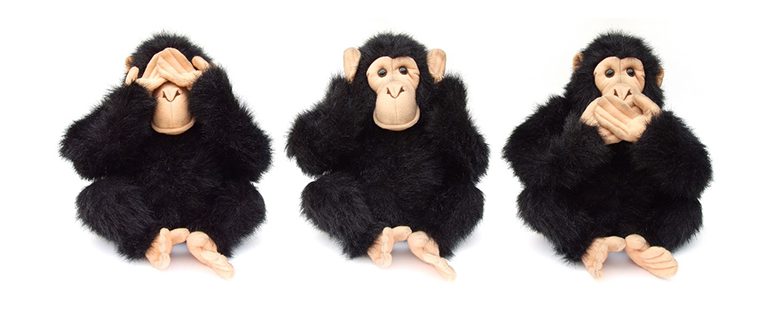
Are people being treated differently when they don’t fit the picture?
If you have a disability, the way people react to you is something you’ll know all too well. But if you don’t have a disability, experiencing it can be eye opening…
A few weeks ago I went out with some friends. We were at a club where the music was really loud. I talked… no, shout-talked a lot until 5am in the morning.
When I woke up the next morning my voice was gone. I’d talked so much that my voice wasn’t even restored for the whole day.
During this time I still had to do some shopping. First store was a toyshop, I needed a present for a child’s birthday. I walked to the counter and the friendly woman behind the counter said: “Hello! How can I help you?” With my voice as it was there were two options. One, I could try to sound like Gollem from Lord of the Rings buying a toy. Or two, not to say anything at all and use some form of sign language.
I chose the second option. The gesture I made was me pointing at my lips and nodding no. To me that was a perfect sign to say: “Hey there, I can’t talk to you!”
The next thing that happened was totally unexpected. The woman looked me in the eyes and I could tell that she wasn’t expecting that at all. She was totally thrown off by the fact that I didn’t responded like everyone else. She started to treat me differently to the other customer who was in front off me in the line.
She asked me: “Is it a present? Shall I wrap it up?” All in a childlike tone, as if i was deaf or dumb. It was a reaction I had never experienced before. So I nodded yes. She took the paper and clumsily started to wrap the present up. I made a facial expression and another hand gesture to say thank you and goodbye as I took the present of the counter and walked out the store.
When I left the store I felt strange. Perhaps she was a new employee and still needed to learn how to wrap a present up. But I got curious and asked myself the question: are people being treated differently when they don’t fit the picture? Of course I already knew the answer. Most of us know people get treated differently because they look or act differently. But it had never happened to me before, so I didn’t really know just how it would feel.
I decided to do it again at the next shop. It was a market stand this time. I walked up to the counter and the woman behind it asked friendly: “How may I help you?” I made the same hand gesture as before. And I’ll be damned, it happened again.
She was probably more used to different sorts of people and continued asking me (suddenly in a very childish way again) what I needed. She was very friendly and I got what I wanted, payed for it and gave her some thumbs up. She started waving me goodbye like we were friends.
I repeated the process several times at different shops and they all did the same sort of thing. The last visit was to a supermarket. I walked to the counter and got a friendly hello. This time I wanted to try something different, so I didn’t make the hand gesture, but instead just nodded yes or no to the questions I got asked. Suddenly it wasn’t friendly anymore. In fact, I didn’t receive a goodbye at all.
It’s amazing how people respond in an unexpected situation. People who have some form of disability don’t deserve or want to be treated differently. So, I want to give everyone the advice to try this sometime. It made me realise that I probably would have responded the same way – until I experienced it for myself.
By Bart de Bruin
Check out…
• New York Fashion Week: the first runway model in a wheelchair
• Designer limbs: top pimped prosthetics
• “Why am I disabled?” 10 funny answers to a common question
Fancy writing for Disability Horizons or have an idea for an article? Get in touch by messaging us on Facebook, tweeting us @DHorizons, emailing us at editor@disabilityhorizons.com or leaving your comments below.
Honestly, I try to NOT use a childish, patronizing voice when talking to differently abled people. I’ve heard other people use it and it just sounds wrong. Everyone deserves respect, and from personal experience, I wouldn’t like it if I was treated like that. It’s demeaning.